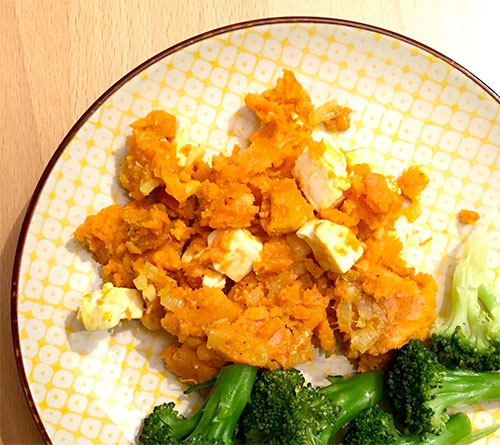Below you will find a selection of the most recent entries from bloggers in our Family/Health section. To view the entries from individual bloggers, click on the links below:
- Mirsada Hoffmann Thriving Global Family: Supports parents raising children across cultures—helping families build emotional resilience, strengthen connection, and find steadiness in the face of change.
- Lee Eldrige The Athlete Tribe
- Dr. Michelle Wright Dr Michelle Wright is a British-trained General Practitioner and Director of HealthFirst, providing physical First Aid training and Mental Health First Aid training, as well as Health Education, throughout Switzerland (www.healthfirst.ch). She also has a regular radio show about health on World Radio Switzerland. Believing that prevention is better than cure and that we should be treating the root cause of illness, Dr Michelle is also a Lifestyle Medicine enthusiast.
- Birgit Suess is a Swiss-American who grew up between the US and Switzerland and speaks English, German and Swiss-German. Because of a worldwide shortage of Speech Therapists, she uses technology to connect special needs students around the world with English speaking Speech Therapists. With almost 20 years of experience as a Speech Therapist and 10 years experience with Teletherapy, she is a pioneer in the Teletherapy world. Her personal specialty is working on social language with high functioning children on the Autism Spectrum. Her passion is finding new and innovative ways to help children with special needs.
- Dr. Irina Schurov is a Nutritional Neuroscientist with a PhD from Cambridge University (UK) and over 20 years’ experience in science and health-providing services. She created and founded LiveRight, an initiative to help others through nutrition and wellbeing strategies. By building an educational platform around healthy eating habits, by restoring the relationships between people and food, by supporting your individual circumstances and through personalized coaching in nutrition, she wants to help you and your family achieve the optimal balance between help and life.
- Dr. Penny Fraser is a British-trained Emergency Medicine doctor, who lives in Geneva. She is also the mother of two busy little skiers aged 7 and 8. Along with Dr Michelle Wright and her other colleagues at HealthFirst, she has a passion for delivering health education and First Aid training to the English-speaking community in Switzerland

Mild head injuries are common, especially in children and during contact sports. They can occur when the head is hit by a moving object (e.g. a ball, car or fist) or when the head hits a stationary surface at speed (e.g. the ground, a wall etc.)
The brain ‘floats’ within the bony skull in some liquid called cerebrospinal fluid. This liquid allows a small degree of movement of the brain. If the skull is hit, then the brain may bounce or twist inside the skull. This can lead to a disruption in the electrical activity in some of the brain cells, causing them to malfunction for a short while. It is this malfunction that causes the symptoms of concussion.
The symptoms of concussion can include:
- A brief loss of consciousness at the time of the injury (followed by a rapid, spontaneous recovery)
- A loss of memory of the accident itself or the few moments before the accident happened (amnesia)
- Feeling dizzy
- Nausea
- Mild headache
These symptoms will, by definition, resolve within hours to days in most cases but may sometimes last for weeks in a few. Once all the symptoms have settled down, then a certain diagnosis of concussion can be made. There is no permanent damage to the structure of the brain when someone has concussion.

By Hiba Giacoletto, Healthwise
There are few foods or drinks more imbued with memories and sensuality than coffee.
Which often brings up this question: Is coffee healthy?
As a Food Coach, my usual response to that question with any food or drink is: It depends - and it is no different with coffee.
Coffee is a great illustration of how nutritional research reveals both sides of a food or drink.
On the plus side…
Coffee has been shown to increase alertness, improve mood and energy, concentration and even athletic performance. It is also a great source of antioxidants and has even been shown to help prevent disease such as Alzheimer’s and Parkinson’s.
On the not so sunny side…
Coffee has been shown to increase blood pressure, increases stress response in the body, spike blood sugar levels, can exacerbate gastro-intestinal problems, inhibits the absorption of nutrients, increases the risk of urinary and prostate problems in men and hormone-related problems with women such as PMS.

By Hiba Giacoletto, Healthwise
This is a simple, tasty recipe that you can serve either warm or cold.
The combination of tastes and textures in this recipe is incredibly interesting to the tastebuds, particularly due to the umami (http://www.healthwise.ch/umami-or-how-to-make-more-satisfying-meals/) combo of garlic / onion / Feta / olives. If you lightly toast the pumpkin seeds, this also makes them more umami and lends a more enticing texture.
Ingredients
- 4 sweet potatoes – medium sized (about 500g)
- 1 tablespoons coconut oil
- 1 teaspoon turmeric
- 2 cloves minced garlic
- 2 onions or scallions, chopped
- 200g Feta cheese, diced AND/OR olives
- About 2 tablespoons parsley or coriander, chopped
- 2 tablespoons pumpkin seeds (optional)
- salt and pepper to taste
- Green vegetable of your choice – here I added some steamed broccoli as a side to make a more complete meal but you can also add a handful of spinach leaves or chopped kale at the end and simply stir through to wilt the leaves slightly.

By Hiba Giacoletto, Healthwise
This is a healthier recipe for gingerbread that is grain-free and vegan. The hardest part is buying the chestnut flour. After that, it comes together in just a few minutes and will make your home smell amazing!
Gingerbread
- 125g chestnut flour – you can buy chestnut flour in any organic store
- 2 tsp gingerbread spice blend (see below for recipe or you can buy a ready-made mix)
- 1/2 tsp baking soda
- 3 tbsp almond butter (made only of ground almonds)
- 1 tbsp molasses
- 300 ml water
- zest of 1 organic orange (optional)

(c) copyright HealthFirst 2015
By Dr Penny Fraser, HealthFirst
“Coughs and Sneezes Spread Diseases”, Ministry of Health, Great Britain 1942:
What you need to know about the flu.
As the mornings are getting mistier and the kids start swapping coughs and colds at school, our thoughts may already be turning to the winter flu season – and how to avoid it.
We use the word ‘flu’ quite freely when someone has ‘just’ a cough, bad cold or fever but actually true influenza, an infection with the influenza virus A, B or C is quite a different affliction. Influenza, the ‘flu’, la grippe, die Grippe, Spanish fever – whatever you call it in your home, it is an illness that needs to be taken seriously.
It is said that the way you can tell the difference between a common cold or influenza is this: You are looking out of the window from your sick bed and see a 100CHF note lying on the grass. If you have true influenza, you just can’t get out of bed to get it!






